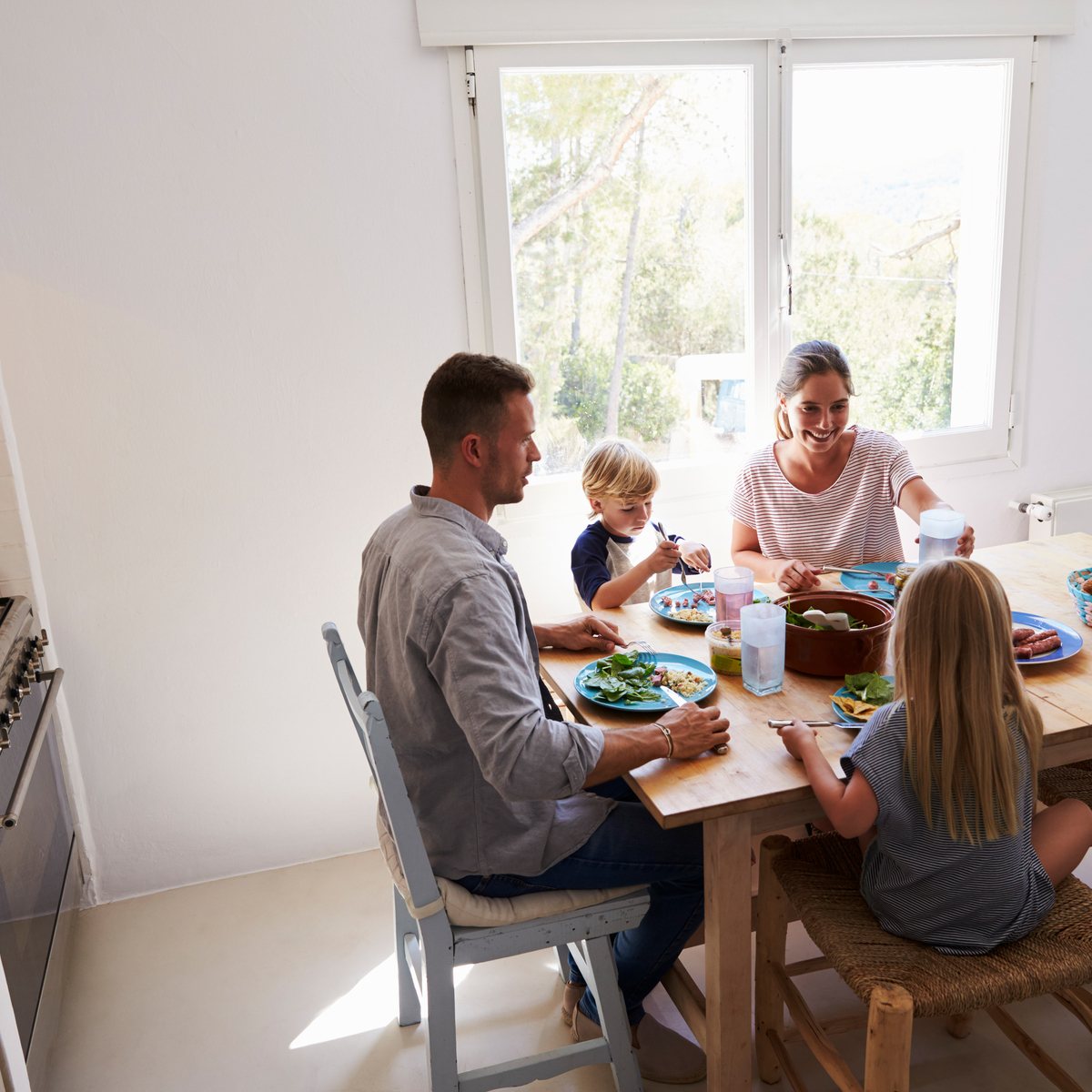Sitting Down to Break Bread Together

In the past few years, I have become increasingly aware of concerning data (randomly collected by me during my work with clients). This data was starkly obvious in working with couples. Often the primary treatment goal that couples come into therapy for is to learn how to “talk” and “listen” to each other. In assessing what couples do with each other to connect, I learn that many couples (and families) are not sitting down to eat meals together. As I begin to paint the picture of what life looks like in the home of the married couple, I find that one of our most natural rituals, eating together, is often not a part of relationships and daily lives anymore. In this age of technology and overscheduling, when is the connecting happening if it isn’t at the dinner table?
As the picture of their lives develops in more detail, it seems that couples are often co-existing with each other, passing through the day with limited connecting time (if any), and unaware that this is having a significant impact upon the relationship. Add children to this complexity, and you find families living parallel lives without any natural ritual to ensure connecting, interacting and bringing them together such as sitting down and eating together. This may be a simple, yet lofty goal for these times.
Being committed to eating together is making it a priority to carve out time for those who matter. This is important for all in the family. Eating together as a married couple or a family should start with some basic ground rules. This might include all family members sitting down at the same time to eat. Electronics and television are turned off during the dinner time. Conversation should be positive and enjoyable. The time together, at the table, doesn’t have to be more than 20-30 minutes. But it is 20 minutes that allows each family member to be present with each other and (learn how) to connect through appropriate communication (maybe “real” communication in this world of texting). This time may be the most you, your spouse, and/or your children will get by way of connecting time all day.
There are tangible benefits from eating together daily. The most obvious benefit is that you set the stage for connecting to happen. Family bonds are strengthened. Routines are developed and provide a sense of security and feelings of belonging. Eating together can be the time that family members know they will be able to share something memorable about their day with those who care. It allows others in the family to listen to the sharing. It sets up opportunity for being able to be there for each other. Whether it is as a parent, or a spouse, eating together gives us the opportunity to “check-in” with each other. Eating can be a natural way to break down barriers in a relationship. It is natural to soften and be a bit more open when we break bread with others. It is an opportunity to model for reciprocal interaction and empathy. And if that isn’t enough, there has been research that shows that children who eat family meals do better in schools, are less likely to take drugs, develop language skills and have better nutrition. (SixWise.com, 2006) (Nahapetvan, 2009)
So as we continue into our new year, maybe a good goal to incorporate for your well-being and your family would be to make time to sit down to dinner on a regular basis. The benefits you will reap will far outweigh the energy it takes to make it happen.
Works Cited
Nahapetvan, M. (2009, February 9). The importance of family dinner together. Retrieved January 15, 2013, from www.enotalone.com.
SixWise.com. (2006, May). The five benefits of eating together at the dinner table. Retrieved Jan 15, 2013, from SixWise.com.
Tags: benefits of sitting down to eat, dinner time at the table, dinner without technology, Sitting Down to dinner, Sitting Down to eat togetherABOUT THE AUTHOR

Janie Pfeifer Watson
Licensed Independent Clinical Social Worker
Licensed Independent Mental Health Practitioner- Janie Pfeifer Watson, LICSW, is the founder and director of Wholeness Healing Center, a mental health practice in Grand Island, Nebraska with remote sites in Broken Bow and Kearney. Her expertise encompasses a broad range of areas, including depression, anxiety, attachment and bonding, coaching, couples work, mindfulness, trauma, and grief. She views therapy as an opportunity to learn more about yourself as you step more into being your authentic self. From her perspective this is part of the spiritual journey; on this journey, she serves as a mirror for her clients as they get to know themselves—and, ultimately, to love themselves.
LATEST ARTICLES BY Janie Pfeifer Watson
- Gentle and Grounded – A Mindful Reset for 2026
- Glimmers of Light – Nurturing Joy During the Holidays
- Live Stronger: Strength, Balance, and Social Connection after 50 Stay strong. Stay Connected. Stay independent.
- Healing is a Lifelong Journey, and It Doesn’t Happen in a Straight Line
- Habits to Develop to Age Well
Subscribe today
Sign up to receive the latest mental health tips and inspiration